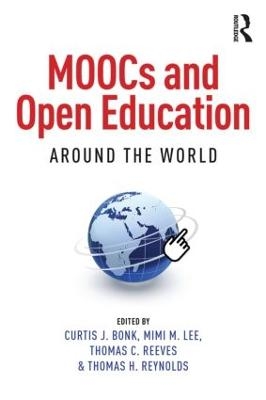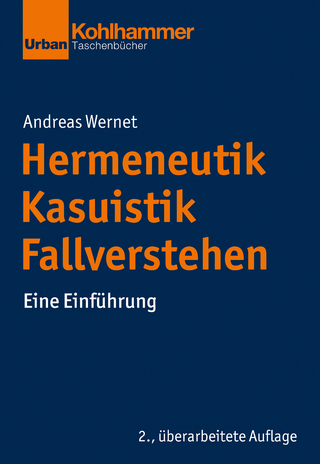
MOOCs and Open Education Around the World
Routledge (Verlag)
978-1-138-80741-9 (ISBN)
In response, MOOCs and Open Education Around the World explores and illuminates unique implementations of MOOCs and open education across regions and nations. The book also focuses on the various opportunities as well as the dilemmas presented in this rapidly evolving age of technology-enabled learning. What are the different delivery formats, interaction possibilities, assessment schemes, and business models? What are the key controversies or issues that must be discussed and addressed? This edited collection explains MOOCs and open education trends and issues in a variety of contexts, shares key research findings, and provides practical suggestions and recommendations for the near future.
Curtis J. Bonk is Professor of Instructional Systems Technology at Indiana University, USA, and President of CourseShare. Mimi Miyoung Lee is Associate Professor in the Department of Curriculum and Instruction at the University of Houston, USA. Thomas C. Reeves is Professor Emeritus of Learning, Design, and Technology at The University of Georgia, USA. Thomas H. Reynolds is Professor of Teacher Education at National University, USA.
Foreword #1: The Role of MOOCs in the Future of Education, George Siemens, University of Texas Arlington, USA
Foreword #2: Open(ing up) Education for All…Boosted by MOOCs?, Fred Mulder, UNESCO/ICDE Chair in Open Educational Resources at the Open University of the Netherlands
Preface: Actions Leading to "MOOCs and Open Education Around the World," Curtis J. Bonk, Indiana University, USA, Mimi Miyoung Lee, University of Houston, USA, Thomas C. Reeves, The University of Georgia, USA, and Thomas H. Reynolds, National University, USA
PART ONE. MOOCs and Open Education: Historical and Critical Reflections
1. The MOOC Misstep and the Open Education Infrastructure, David Wiley, Co-founder and Chief Academic Officer, Lumen Learning, USA
2. The Single Canon: MOOCs and Academic Colonization, Karen Head, The Georgia Tech Institute of Technology, USA
3. MOOCs and Open Education in Japan: A Case of the Open University of Japan, Kumiko Aoki, The Open University of Japan
PART TWO. Open Education Opportunities Now and On the Horizon
4. MOOCs, MERLOT, and Open Educational Services, Gerard L. Hanley, Executive Director, MERLOT and Assistant Vice Chancellor, California State University, Office of the Chancellor, USA
5. Enabling Open Education: A Feasibility Protocol for Australian Higher Education, Carina Bossu, University of Tasmania, Australia, David Bull, University of Southern Queensland, Australia, and Mark Brown, Dublin City University, Ireland
6. Open Education at the University of Cape Town, Laura Czerniewicz, Glenda Cox, Cheryl Hodgkinson-Williams, and Michelle Willmers, University of Cape Town, South Africa
PART THREE. Researching and Evaluating Notions of MOOCs and Openness
7. Strange Bedfellows?!: What can MOOCs learn from Distance Education?, Markus Deimann, Alexander Lipka, and Theo Bastiaens, FernUniversität in Hagen, Germany
8. MOOCs Downunder: Insights from the Open2Study Experience, Maggie Hartnett, Massey University, New Zealand, Mark Brown, Dublin City University, Ireland, Amy Wilson, Massey University, New Zealand
9. Reflections of an early MOOC provider: Achievements and Future Directions, Jeff Haywood, Amy Woodgate, and David Dewhurst, University of Edinburgh, Scotland, UK
PART FOUR. Thoughts on the Quality of MOOCs and OER
10. AMP: A Tool for Characterizing the Pedagogical Approaches of MOOCs, Karen Swan, Scott Day, Leonard Bogle, and Traci van Prooyen, University of Illinois Springfield, USA
11. Quality Assurance for Open Educational Resources: What’s the Difference?, Sanjaya Mishra, Commonwealth of Learning, New Delhi, India, and Asha Kanwar, Commonwealth of Learning, Vancouver, BC, Canada
12. MOOCs for Opening Up Education and the OpenupEd Initiative, Fred Mulder, UNESCO Chair in Open Educational Resources at the Open University of the Netherlands, Darco Jansen, European Association of Distance Teaching Universities (EADTU), The Netherlands
PART FIVE. Designing Innovative Courses, Programs, and Models of Instruction
13. Unbundling Higher Education and the Georgia Tech Online M.S. in Computer Science: A Chronicle, Richard DeMillo, The Georgia Tech Institute of Technology, USA
14. Creating a Temporary Spontaneous Mini-Ecosystem through a MOOC, Paul Kim, Stanford University, USA and Charlie Chung, Class Central, USA
15. Learning about MOOCs by Talking to Students, Chuck Severance, University of Michigan, USA
16. The Collaborative Design and Development of MOOCs for Teacher Professional Development, Bernard Robin, and Sara McNeil, University of Houston, USA
17. Feminist Alternatives to Massive Open Online Courses (MOOCs): The Inception of the Distributed Open Collaborative Course (DOCC), Erika M Behrmann, Bowling Green State University, USA, Radhika Gajjala, Bowling Green State University, USA, Elizabeth Losh, University of California, San Diego, USA, T.L. Cowan, The New School, USA, Penelope Boyer, San Antonio, TX, USA, Jasmine Rault, The New School, USA, Laura Wexler, Yale University, USA, CL Cole, University of Illinois, USA
PART SIX. MOOCs and Open Education in the Developing World
18. Changing the Tune: MOOCs for Human Development? – A Case Study, Balaji Venkataraman and Asha Kanwar, Commonwealth of Learning, Vancouver, BC, Canada
19. Harnessing the Power of Open Learning to Share Global Prosperity and Eradicate Poverty, Sheila Jagannathan, World Bank, Washington DC, USA
20. The Glocalization of MOOCs in Southeast Asia, Zoraini Wati Abas, Universitas Siswa Bangsa Internasional – The Sampoerna University, Jakarta, Indonesia
21. Situating MOOCs in the Developing World Context: The Philippines Case Study, Melinda dela Pena Bandalaria and Grace Javier Alfonso, University of the Philippines Open University, the Philippines
22. OER and MOOCs in Africa: The AVU Experience, Griff Richards, Athabasca University, Canada; Bakary Diallo, African Virtual University, Nairobi, Kenya
PART SEVEN. MOOC and Open Learning Alternatives in Corporate Settings
23. Open Learning in the Corporate Setting, Elliot Masie, The Learning CONSORTIUM @ The MASIE Center, USA
24. ALISON: A New World of Free Certified Learning, Mike Feerick, CEO & Founder, ALISON, Ireland
25. Alternative Models of MOOCs, Ray Schroeder, Vickie Cook, Carrie Levin, and Michele Gribbins, University of Illinois, Springfield, USA
PART EIGHT. Future Glimpses and Open Options
26. The Learning Future: Personalised Learning in an Open World. Michael Keppell, University of Southern Queensland, Australia
27. Peer2Peer and Open Pedagogy of MOOCs to Support the Knowledge Commons, Rita Kop, Yorkville University, New Brunswick, Canada, Hélène Fournier, National Research Council Canada
28. MOOCs 2030: A Future for Massive Open Learning, Rebecca Ferguson, The Open University, UK, Mike Sharples, The Open University, UK, and Russell Beale, University of Birmingham, UK
29. Open Options: Recapping this Book with Eyes on the Future, Thomas H. Reynolds, National University, USA, Thomas C. Reeves, The University of Georgia, USA, Mimi Miyoung Lee, University of Houston, USA, and Curtis J. Bonk, Indiana University, USA
Index
| Zusatzinfo | 8 Tables, black and white; 105 Illustrations, black and white |
|---|---|
| Verlagsort | London |
| Sprache | englisch |
| Maße | 152 x 229 mm |
| Gewicht | 572 g |
| Themenwelt | Sozialwissenschaften ► Pädagogik ► Allgemeines / Lexika |
| Sozialwissenschaften ► Pädagogik ► Erwachsenenbildung | |
| ISBN-10 | 1-138-80741-9 / 1138807419 |
| ISBN-13 | 978-1-138-80741-9 / 9781138807419 |
| Zustand | Neuware |
| Informationen gemäß Produktsicherheitsverordnung (GPSR) | |
| Haben Sie eine Frage zum Produkt? |
aus dem Bereich


